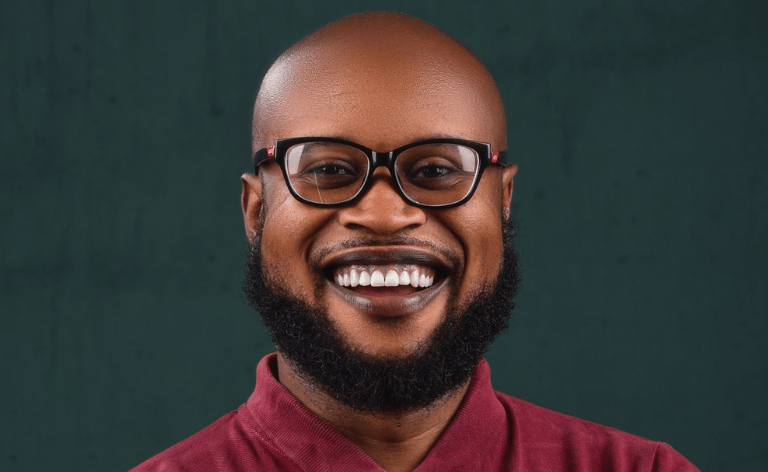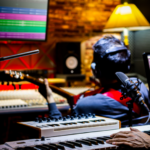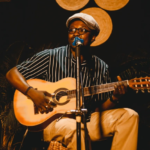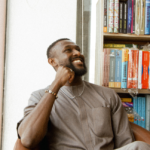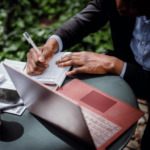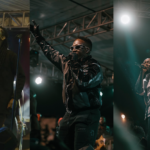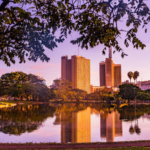Ambassador Odinaka Kingsley Obeta shares his desire to end malaria through the Block Malaria Project
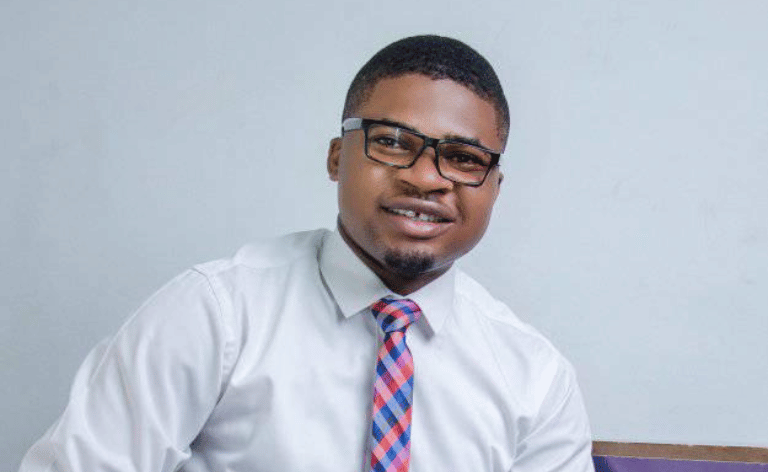
The Impacting Nigeria series has been running for some months now – From August till now. In these few months, we have seen the stories of different young people scattered across Nigeria all working to create positive change and impact in their communities, especially in the area of education. ICYMI, you can check the other stories by following this link. Today to round off the series for this year, I bring you the story of Ambassador Odinaka Kingsley Obeta and the Block Malaria Project. This story is not centred on the educational sector like the others but is a story of the impact being made by a young man and his friends.
Enjoy the read and do well to support them however you can.
Hello Ambassador. Tell us About Yourself
My name is Odinaka Kingsley Obeta. I am a Public Health enthusiast, a peace and good governance advocate and a very passionate Medical Laboratory Science Student. I am a Class 2019 Fellow of the Millennium Fellowship, a project of the Millennium Campus Network and the United Nations Academic Impact and also the State and National Project Coordinator of the Block Malaria Project. I am as well an On-Air personality with Ice 96.1fm Jos and the Vice President of the Security Council of the Model United Nations Development Organization, MUNDO Plateau state. I live in Jos Nigeria and I’m privileged to be the first of four amazingly beautiful children from my dynamic parents.
I almost caught a headache trying to compile all the things you do. Is there a connection between all of them? What is the denominator driving force?
The main aim of all I do is to add value to society even while building capacity and competence. The media is more like life itself, if you don’t live or work in the media you’ll definitely be left out in this century. My driving force is my intense passion to see a better generation of young people who would understand their worth and make their contribution towards nation-building irrespective of their age, socioeconomic status, religion or ethnicity.

How does it feel to be a Millennium Fellow? What responsibility does this entail and how do you cope?
The millennium fellowship is a program organised by the Millennium Campus Network and the United Nations Academic Impact with the target of training undergraduate leaders in different areas as it relates to social impact activities. It feels so great to be a millennium fellow, the fellowship has given me the opportunity to learn a lot about leadership, inclusion, empathy and humility which are some of the core values of the Millennium Fellowship. I have learnt how to execute a social impact project and I have also had the privilege of sharing my work with so many global figures. As a millennium fellow, I am trained to become a global leader contributing my quota of solutions to global challenges through the implementation of social impact activities inspired by the sustainable development goals of the United Nations.
Can you share briefly on Office of the Citizen? What is the purpose and what gains have you achieved?
Office of the citizen is a Citizen Orientation Radio Program aimed at equipping citizens with the right knowledge about their roles in governance and empowering them with insights on how to hold their elected leaders accountable. The programme is also aimed at helping citizens participate actively in the affairs of governance and also helping them know the aftermath of not participating in electoral, budgetary and policy-making processes amongst other citizen-based issues as they unfold. You can join us on the programme every Friday from 9 am – 10 am on KT103.9fm Jos and don’t forget to always make your contribution as a citizen of the federal republic.
Most notable of your projects and the main focus of this interview is the Block Malaria Project. What is the Block Malaria Project?
Yeah, Block Malaria Project (BMP) is a national malaria intervention initiative, this community and public health development project is geared towards enhancing the level of sensitization on malaria which is one of the most endemic diseases affecting Sub-Saharan Africa, this time with 36 states of Nigeria in focus. What we do basically is to employ the preventive approach towards the control and eradication of the vector transmitting malaria. The project targets low-income communities where sanitation is a big issue and malaria cases are high. This is achieved through our social behavioural change communication concepts.
Each year, Block Malaria Project adopt a beneficiary low-income community using a competitive selection process. In 2018, it was Angwan Rukuba community in Jos north LGA of Plateau state. In 2019, it was the Jenta Mangoro community still in Plateau state. By the year 2020, we are extending the project to Borno state, Ebonyi state and subsequently to other States across the federation.
Our goal is to achieve SDG 3 (Good Health and Well Being), SDG 6 (Clean Water and Sanitation) and SDG 17 (Partnership for the goals) in every community we visit. The project is made possible through generous support from partners and hundreds of young and dedicated volunteers across the country that are passionate about ending malaria in Nigeria.
How did the Block Malaria Project start? Take us through the process, thoughts and the start.
Wow, that’s actually a long story but let me try to summarise it! So, in 2017 while I was in 300Level, I was awarded by the Association of Medical Laboratory Scientists in Nigeria, Plateau state branch as an ambassador of the medical laboratory profession for my contributions towards the growth of the profession. One of these contributions was noted during the world malaria day celebration in 2017. Later in 2018, while pondering on what the 2018 world malaria day in Jos would look like, I wondered how many people in Jos knew that malaria is life-threatening. I also wonder what my role as a medical laboratory scientist in training would be in combating malaria at the community level. So, I thought about Jos Block Malaria, at first, the name sounded cool but the aim wasn’t cleared, I however got things right when my friends Kespan Maxwell and Kingsley Jerry Olotu came home. I actually had to go drag them to my place after rehearsals in the church at about 7 pm that faithful day. After sharing the idea with them, it sounded cool and they expressed enthusiasm that the project is possible. So, we had the first program on 25th April 2018. Well, today, we’ve worked with over 500 young people on the project and we are contributing positively to society.

How serious are health challenges in especially rural or semi-urban areas in Nigeria? How serious is the threat of malaria specifically?
As an individual, I have been privileged to visit what you will refer to as a “rural or semi-urban community�? in virtually all the six-geopolitical zones of Nigeria and I can tell you boldly that the continuous increase of health challenges is a product of poor healthcare facilities across the nation which is indeed a general issue, even though some areas have lesser burdens than others. Health challenges in Nigeria are very enormous, especially with the recent trend of antimicrobial resistance which has become a global topic of discussion. Global health discussions are trending to promote Universal Health Coverage for all global citizens but from the look of things, Nigeria is still lagging far behind even on this matter. If a community hosting close to 30,000 residents cannot boast of one good primary Health Care Centre or stable water supply that should tell you the state of things. With a dilapidating economy grossed with several cases of corruption in various sectors, how can we grow as a nation? According to the World Health Organization, every 2 minutes a child dies of malaria. And each year, more than 200 million new cases of the disease are reported. Pregnant women and children less than 5 years are more vulnerable to malaria and they make a greater percentage of deaths due to the disease. Although countries have dramatically reduced the total number of malaria cases and deaths since 2000, progress in recent years has stalled. Worryingly, in some countries, malaria is on the rise. Unfortunately, one of such countries is Nigeria, but what do you expect of a country whose budget for health care is less than 10% of its annual budget?
From the areas you’ve visited, what is the state and level of basic health literacy amongst the locals?
Sincerely it’s quite poor; as I said earlier the challenge is a general issue cutting across all six geopolitical zones. The concept of television is gradually fading off hence why there are little or no health awareness adverts on television these days. However, since television is fading away to give way for social media, I expect that the government and other relevant agencies will consider running health awareness on social media. You will agree with me that even native doctors now have social media handles where they campaign about their spiritual powers and herbal concoctions, why then can’t we have massive online health advocacy campaigns powered by the government?
What roles can private individuals, NGO’s and the Government play to curb these health challenges?
The government already know what to do – health is wealth. The fact that we cannot afford to fly to London for medical check-up as “ordinary citizens�? does not make us lesser Nigerians. Government must increase the budget for health care and pay attention to developing the health sector in Nigeria. If we have the best health care in Nigeria, I believe we’ll save plenty of money from flight tickets alone. Well NGO’s have tried, let’s not overstretch it! If not for them a whole lot more damages would have been done especially in the rural communities. As for we the members of the society, I have always said that we the citizens are the major cause of our misfortunes; until we learn to elect the right people to power our challenges will continue! The health of your neighbour is your responsibility, stand up, keep your environment clean and adopt a healthy lifestyle.

What are the future plans for the Block Malaria Project and how can prospective partners work with you?
Our plans for the future are quite numerous; we are keen on extending our projects to other parts of Nigeria and beyond. As an organisation, we are determined to keep equipping sub-Saharan Africa with the knowledge of malaria prevention and control. This of course cannot be achieved by us alone; hence we are opened to the partnership from individuals and organisations based in any part of the world. One of the major challenges we’ve been faced with is funding/financial and partnership support from individuals and relevant agencies. Considering the work we do, so much financial engagement is required to help extend the project to other low-income communities across the federation, hence we’re open to a partnership with organizations and individuals willing to partner with us on our subsequent projects.
You can partner with us on any aspect of our project; you can as well sign up as a volunteer for our 2020 projects. Our details are below, call us, send us an email and follow us on all our social media platforms.
Follow us on;
Facebook, Twitter and Instagram @Blockmalaria
Contact/support/partner us: +2348132351841 +2349056589526
Email: blockmalariaproject@gmail.com
You’ve read about the Block Malaria Project. One of the notable things Odinaka has said is how sanitary conditions contribute to the spreading of malaria. Let’s all do our parts to keep our environments clean and Block Malaria.
Thank you for staying on the Impact Nigeria Series. See you Next Year. I wish you a Merry Christmas and a Happy New Year.

